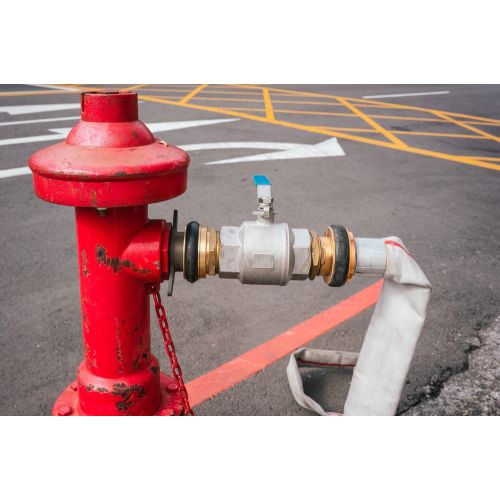Why You May Need A Fire Hydrant In Your Home Or Workplace
From factories and airports to shopping centres and housing developments, fire hydrants are an essential piece of equipment in many settings. Find out why in this article!
Fire hydrants are primarily used in public spaces so that fire and rescue services have quick and easy access to the local water supply in the event of a fire.
There are hundreds of thousands of them dotted around the country, so chances are you’ve seen a few whilst you’ve been out and about.
They aren’t just used in public spaces, though, and many home and business owners are starting to install them on their private properties.
But why might you need a fire hydrant in your home or workplace?
In this post, the experts at Total Pipeline Systems explain the different uses of private fire hydrants and why you should definitely consider installing one on your property.
So, who can benefit from a private fire hydrant?
It’s not just fire and rescue services that need fire hydrants.
There are many other common uses, and just some of them include:
- Industrial facilities – in case of emergencies, it’s vital that factories and manufacturing plants have access to a reliable water supply. These kinds of facilities may use specific fire suppression systems, like sprinklers for example, which require a robust connection to a water supply.
- Commercial properties – shopping centres, office buildings, restaurants and hotels. These are just a few commercial properties that need quick, easy access to a water supply in the event of a fire.
- Healthcare facilities – hospitals and other healthcare facilities are critical, so need immediate access to a nearby water supply for firefighting in case of an emergency.
- Airports – airports, ports and other large transportation hubs may have fire hydrants strategically placed to ensure rapid response and efficient firefighting in the event of an emergency involving an aircraft, a ship or another vehicle.
- Residential communities – gated communities, high-rise apartment complexes and housing developments may want to install a private fire hydrant close by for immediate access to a water supply to protect residents and properties in the event of a fire.
Are private fire hydrants really necessary?
If you have a duty of care – be it towards your employees, patients, tenants or customers – installing a private fire hydrant is non-negotiable.
But aside from helping to extinguish fires and keep everyone safe, they have many additional benefits that you might not have even thought of.
For instance, did you know that some insurance companies offer reduced premiums for properties equipped with a private fire hydrant?
Having this equipment in your home or workplace may be seen as a protective safety measure, resulting in lower insurance costs.
Installing a fire hydrant also helps commercial building owners comply with local safety regulations – if they don’t, this can result in hefty fines and, in some circumstances, jail time.
Aside from this, having a fire hydrant on your private property also provides general peace of mind that your family and assets are all protected in the event of a fire.
Who is responsible for maintaining private fire hydrants?
Private fire hydrants are the responsibility of the owners/occupiers on whose land they are installed.
This means that they won’t be maintained by the local fire and rescue service or water company.
Private hydrants can be inspected by fire and rescue services if required, but it is your responsibility to look after any hydrants that have been installed on your private property.
Need expert advice?
Interested in our collection of fire hydrants and accessories? Need installation and maintenance tips?
We’re here for you!
Call our experts today on 01254 382 000 or email your questions to sales@totalpipes.co.uk
and we’ll be in touch with more information shortly!

